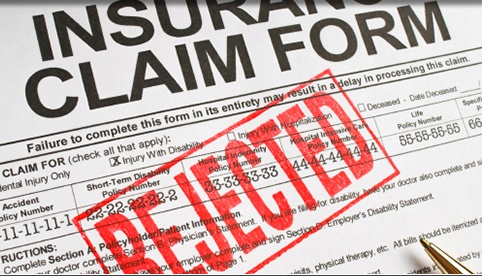If you’ve been injured in a car accident, you would really like to think that you’re in “good hands,” and that you’ll be treated like a “good neighbor.” I can’t tell you the number of times I’ve had clients tell me that they just assumed their insurance adjuster would be fair with them when they made a personal injury claim. So many of my clients assume that the personal injury insurance adjuster will take the time to carefully read and review their medical records, listen to their complaints and then use their best personal judgment to make a fair settlement offer on their personal injury claim. The hard truth is this: Most personal injury adjusters don’t have the time or the interest to pay you what’s “fair,” and they rely on a computer as a substitute for human judgment.
With a case load of 200-300 claims at a time, there is no way your typical injury adjuster has the time to carefully review your medical records and give careful consideration to your personal injury claim. The little known secret of personal injury claims is this – it is usually a computer that is evaluating your claim, not a human adjuster. Most insurance companies use claim evaluation software to analyse personal injury claims and “spit out” a settlement range. Rarely, if ever, will you be able to settle a claim over this range. Most personal injury insurance adjusters quickly review your medical records (the ones that they have, anyway) and input the information into their software. The software scores points and throws up red flags based on the information provided and then spits out a number that is a “fair” (at least according to the insurance company) settlement for your case. Human judgement is far less important than what the computer says, and, oh by the way… Did I mention that most adjusters have a case load of several hundred claims at a time? So what do you think the odds are that the personal injury adjuster is going to fully and accurately input ALL the information necessary for the highest possible evaluation of your claim?
So what does this mean for someone who has been injured in a car accident or has another type of personal injury claim? Well, first and foremost, you have to remember that your promptly seeing the appropriate medical providers and fully documenting your injuries is the key to making a full and fair recovery. If you put off going to the emergency room or seeking medical care when injured, you are seriously undermining your case. If you fail to seek initial medical treatment within three days after your accident, the computer software may treat your claim as “suspect” and refer it to the insurance company’s “Special Investigation Unit” to see if their is fraud involved! When you get to the doctor, it is important to document ALL of your injuries, and make sure to let your care provider know how those injuries affect you in your day to day life. For example, don’t just say “My back has been hurting me.” Instead, more fully explain: “My back has been hurting me, and that makes it difficult for me to sit comfortably at my desk at work. It has also been impossible for me to cook at night. I’ve always taken care of the vacuuming at the house, and I just can’t do that right now because of my pain.” Promptly seeking treatment, and them making sure that all of your injuries, and the effects of those injuries, are fully documented in your medical records is critical.
Even after you have sought appropriate medical treatment and communicated all of your injuries, complains, and the effects on your day to day living, you cannot rely on the adjuster to read, input, and make sure the computer factors in all these elements in processing your claim. The very best way to get the very highest possible recovery for your personal injury claim is to hire a qualified and experience personal injury lawyer who is familiar with the law, the process, and the claims adjusting software. A good personal injury lawyer knows how to fully document and prepare a claim for maximum recovery from the very first conversation with the client. Knowing how to read medical records and other evidence and “feed” the computer what it wants to see is of key importance in the process. It is not enough to have the facts and the medical documentation on your side – your best outcome will be achieved when you have an experienced lawyer who knows the system, and the software, representing you in your personal injury claim.
Stewart J. Guss is a Houston Personal Injury Attorney with 20 years experience. He represents clients in Houston, Spring, Katy, The Woodlands, Tomball, Cypress and throughout Texas with personal injury claims. Call Stewart now at 800-898-4877 for free, no obligation consultation about your own claim. Remember, there is no charge for this consultation and Stewart Guss will charge no fee unless he wins your case.






